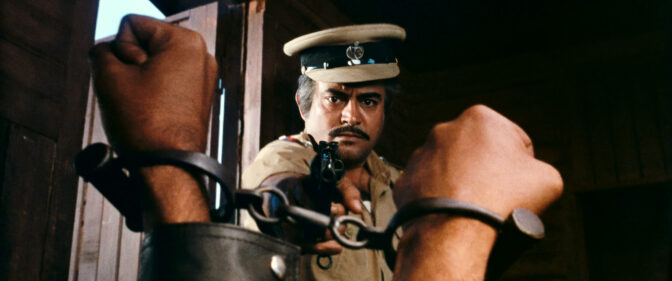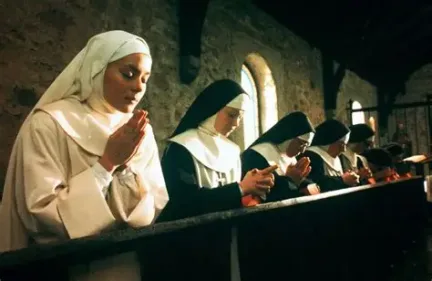The screening had just ended and I was checking my messages when I saw the news in stark tiny print that Harold Ramis had passed away at the age of 69 from autoimmune inflammatory vasculitis, which he had been battling for the last few years. Even though the Grim Reaper seems to have been working overtime of late, this bit of news still came as a shock to the system. Although he may not have had the instant name recognition of some of his colleagues, he was one of the key architects of the revolution of American comedy on the stage and screen that began in the ’70s and which continues to this day. The idea that his voice has now been silenced is almost inconceivable.
Born in Chicago on November 21, 1944, Ramis kicked around the city after college doing odd jobs—public schoolteacher, mental ward orderly, joke editor at “Playboy”—before joining the famed Second City comedy troupe in 1969. A few years later, he and other Second City notables like John Belushi, Gilda Radner and Bill Murray headed for New York. He went to work for National Lampoon as a writer and performer on their popular comedy albums and stage and radio shows. While most of his colleagues would go on to fame on “Saturday Night Live,” Ramis went to Canada to serve as head writer and occasional actor for the cult sketch show “SCTV.” Although it never reached the level of popularity of “SNL,” it was often the funnier of the two shows.
Eventually he went to Hollywood and wound up taking part in more flat-out comedy classics than practically anyone of his or subsequent generations. As a writer and/or director, he was involved with such smash hits as “Animal House,” “Meatballs,” “Caddyshack,” “Stripes,” “National Lampoon’s Vacation,” “Ghostbusters,” “Back to School” and, of course, that most beloved and cherished of contemporary films, “Groundhog Day.” Suffice it to say, he could have made his entire career on just one of these titles. To have worked on all of them and plenty more leads to the kind of Hall of Fame resumé that few could ever hope to touch.
There were other films as well and while they may not have reached the critical and commercial heights of his biggest hits, there were still some real winners among them that are ripe for rediscovery. The island comedy “Club Paradise” was a mess, but it was a genial one that saw him effectively deploying an eclectic cast that included Robin Williams, Peter O'Toole, Jimmy Cliff and several of his Second City comrades. “Multiplicity” took a one-joke premise—Michael Keaton clones himself and wackiness ensues—and made it into a winning story that deftly juggles humor, elaborate special effects and a surprisingly thoughtful look at the challenges of balancing work and family. “The Ice Harvest” was a delightfully dark comedy noir in the vein of “Fargo” that mixed ruthless criminals and Christmas cheer into a hilarious package that deserves a place on any list of alternative holiday films.
The real standout of this bunch is “Stuart Saves His Family,” a film that took perhaps the least-likely “Saturday Night Live” character to get his own spinoff movie—Al Franken’s bizarre motivational speaker Stuart Smiley—and placed him in an unexpectedly strong comedy-drama about the corrosive effect of family dysfunction. Perhaps not surprisingly, it was a non-starter at the box office, but like so many cult favorites before it, it looks better with every passing year.
The comedy style that began to dominate when Ramis first made his mark was of a caustic, cynical and highly ironic nature—pretty much everything was up for grabs. and there was often a cruel and misanthropic streak running through the material that, when mishandled, could leave a bad taste in the mouth. What Ramis did was to bring a certain level of compassion to the proceedings that was often lacking in the efforts of other comedies of his era. Take the likes of “Meatballs” or “Stripes” or “Back to School.” These are three films containing the most basic of comedic premises. They could have been made into ordinary slob comedies. But because the characters were genuinely likable beneath their goofball exteriors and were placed in identifiable situations, the films gave audiences a genuine rooting interest in the action without sacrificing laughs.
What made the news of Ramis’ death such a gut-punch, at least from my own personal perspective, was that it meant the loss of not just a great filmmaker but a great Chicagoan as well. After spending time in Hollywood, he moved back to the city with his family. He was a familiar and friendly face on the local entertainment scene who always seemed willing to lend a hand when needed. Over the years, I had the privilege of talking to him several times. He was never anything less than warm, gracious, self-effacing, intelligent, and seemingly without a bone to pick with anyone—the most negative thing I recall him saying was that “Caddyshack II,” which he co-wrote, was pretty awful.
Ramis was equally loved by audiences and critics. When he would turn up on a movie screen, just the sight of his distinctive visage would buoy viewer enthusiasm. When I saw “As Good As It Gets,” in which he had a cameo, the theater burst into applause when he came on the screen. As for critics, Ramis earned so much respect over the years that when he occasionally stumbled—as he did with his final feature, the fairly woeful Biblical comedy “Year One“—reviewers surmised that it was just a mistake and that he would do better next time.
Sadly, there would not be a next time. Ramis is gone and has left behind a wife, Erica; three children, Violet, Julian and Daniel, and memories of some of the biggest laughs to hit the big screen in the last few decades. Considering his success over the years as a writer, it is ironic to discover just how difficult it has been to adequately sum up his life, work and cultural impact. In the end, one would be better off seeking out his work and discovering (or rediscovering) what made him so special and unique for themselves. Anyone choosing to make such an exploration has a lot of laughs and wonderful movies in store for them.












